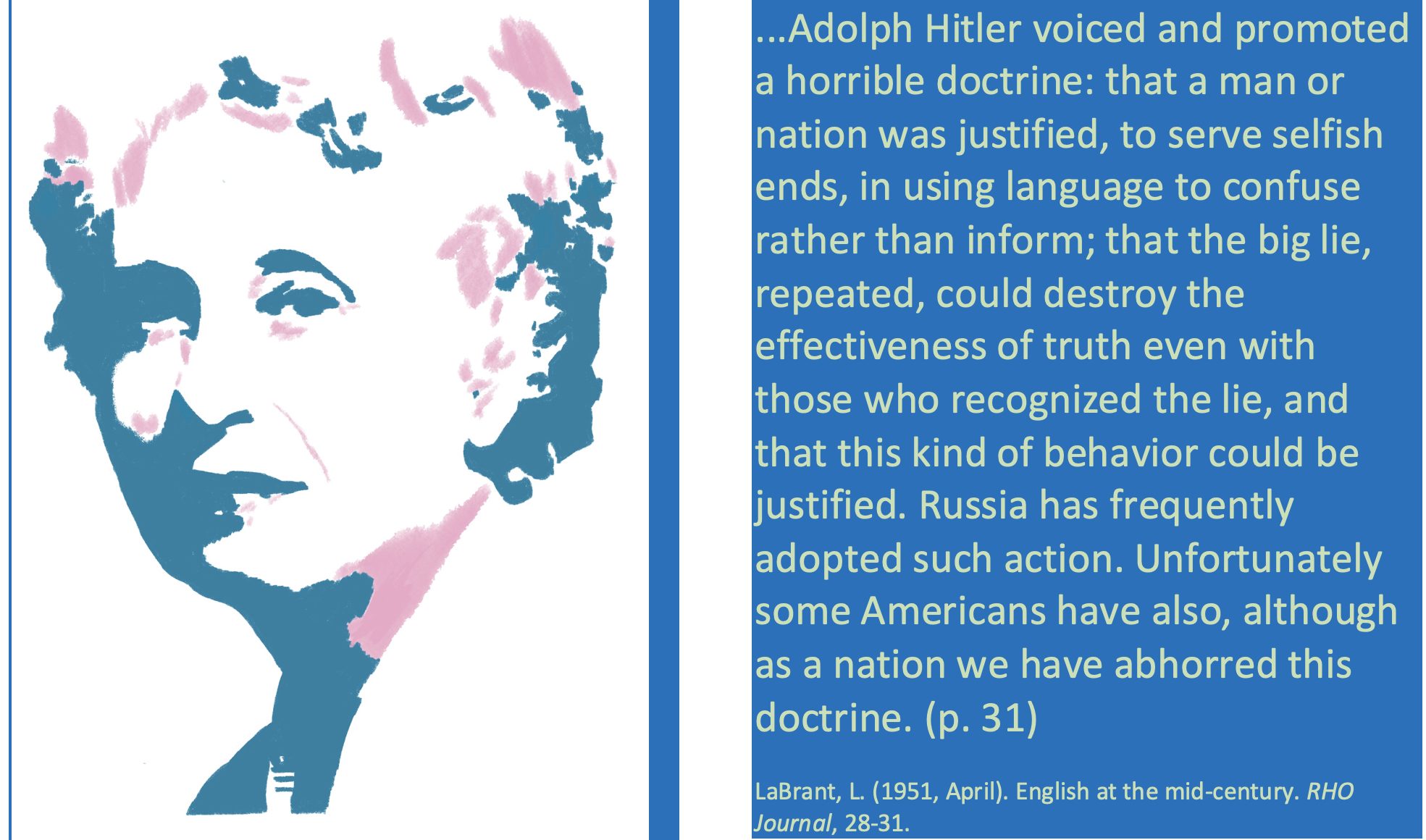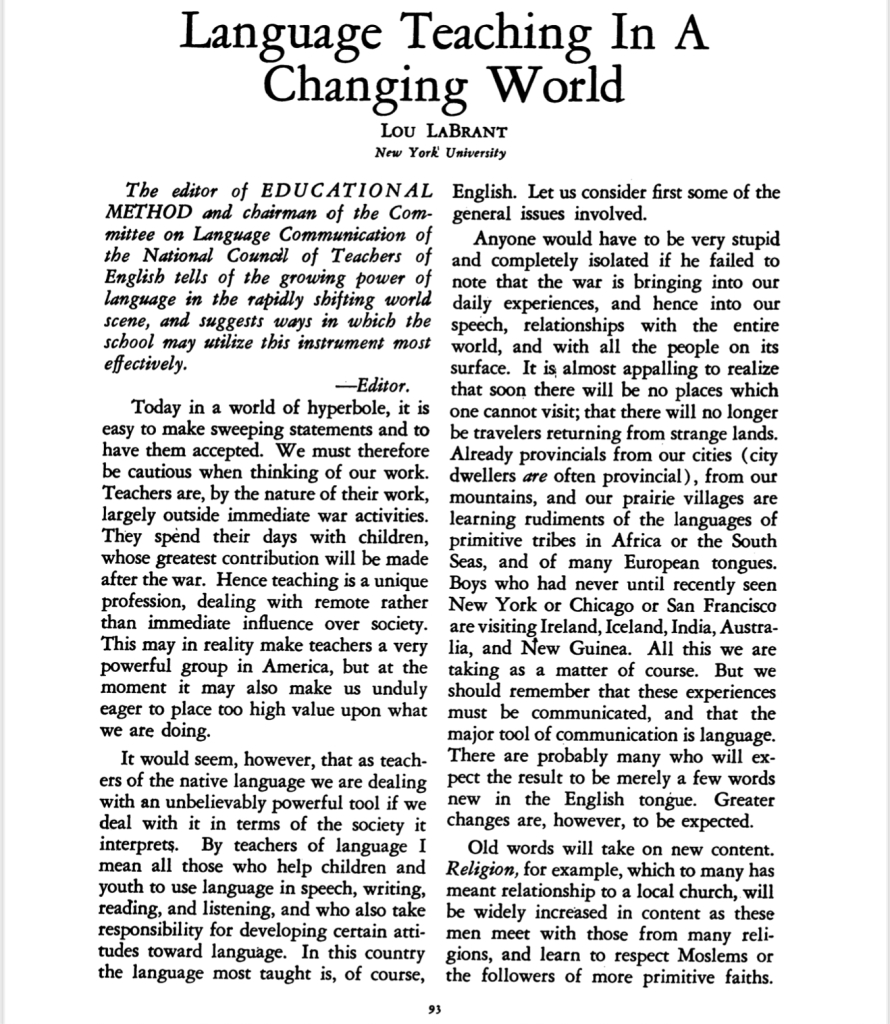LaBrant, L. (1943, March). Language teaching in a changing world. The Elementary English Review, 20(3), 93–97. http://www.jstor.org/stable/41382675
Original editor note:
The editor of Educational Method and chairman of the Committee on Language Communication of the National Council of Teachers of English tells of the growing power of language in the rapidly shifting world scene, and suggests ways in which the school may utilize this instrument most effectively.
Quoting LaBrant:
Today in a world of hyperbole, it is easy to make sweeping statements and to have them accepted. We must therefore be cautious when thinking of our work. Teachers are, by the nature of their work, largely outside immediate war activities. They spend their days with children, whose greatest contribution will be made after the war. Hence teaching is a unique profession, dealing with remote rather than immediate influence over society. This may in reality make teachers a very powerful group in America, but at the moment it may also make us unduly eager to place too high value upon what we are doing. (p. 93)
What all of this will mean ten or twenty years hence we as teachers of the language probably can not predict. But certainly it will mean many changes, changes which we will be unable to prevent if we would. It is important that we do not set up in our classrooms prejudices or snobberies which will make our students less instead of better able to understand, enjoy, and use this language. Such a mingling of tongues took place in England from 1066 to 1400. The teacher who understands the history of English will find current changes interesting and stimulating. (p. 94)
Too frequently we give children books which have enough value that we call them “good,” forgetting that there are other, perhaps more important values which we are thereby missing. It is actually possible that reading will narrow rather than broaden understanding. Some children’s books, moreover, are directed toward encouraging a naive, simple acceptance of externals which we seem at times to hold as desirable for children….Let us have no more of assignments which emphasize quantity, place form above meaning, or insist on structure which is not the child’s. (p. 95)
Far too often as a people we are led astray by orators or writers whose words sound fine and smooth, but whose meanings are false, shallow, or misleading. We make their path easy when we approve essays, stories, or poems which are imitations or are full of words used for the sake of sound. We are responsible for such writing when we approve the correctly punctuated, correctly spelled, and neatly written paper which says nothing of importance, as against a less attractive but sincere account or argument. Children can and should learn to write correctly; but first should be sincere, purposeful expression of the child’s own ideas. (pp. 95-96)
Similar unsound attitudes can be the result of being taught to “write just anything” (or to write on the teacher’s topic) ; to spend time correcting sentences which someone else has written about nothing of importance; to change one’s structure merely to have a variety of sentence forms; and so on through a whole series of assignments based on the principle that form is first and meaning second. (p. 96)
Teachers who follow the rule of emphasizing meaning and true communication find children eager to accept conventional form, and to choose words carefully. But the choice is then in terms of the purposes of the writer or speaker, and not in terms of artificial or superficial standards….Teachers should consider carefully what they are doing with the most intimate subject in the curriculum. (p. 97)
First page:

